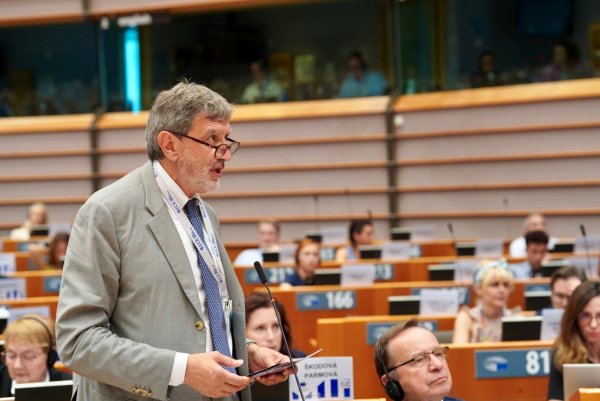
During the CoR Plenary debate with European Commissioner for Transport and Sustainable Tourism Apostolos Tzitzikostas, ECR Group President Marco Marsilio stated that for tourism "to be considered really "sustainable", it should take into account not only the environmental aspect, but also the economic dimension as well as investments in transport infrastructures to reduce the gap between metropolitan and rural areas".
Sustainable tourism means investing in transport infrastructures, like ports, airports and railways. Offering the example from his region of Abruzzo, President Marsilio explained how they managed "to combine the demand for increasing tourism with the need to preserve natural landscapes and historical heritage". For example, by abolishing the municipal added taxation, the cost to access the regional airport decreased, leading to an increase of 40% in terms of passengers compared to June last year.
President Marsilio highlighted the importance of implementing a true cohesion policy that helps to reduce the gaps between rural, internal, mountain areas and cities. Investments in sustainable means of transport like trains are essential if we want to talk about "real sustainable tourism". To avoid "rural depopulation" it is necessary to invest in means of transport and infrastructure that are efficient, modern and whose implementation "does not fall solely on the regions' budgets". Marsilio stated that by doing so, these areas can be repopulated not only with tourists but with residents.
Transport and tourism are strictly intertwined, and President Marsilio underlined how the ECR Group is looking forward to seeing the "principle of technological neutrality" at the core of the CO2 emissions' regulation revision, as it is "the most viable solution to keep the automotive sector competitive and growing".

